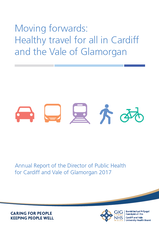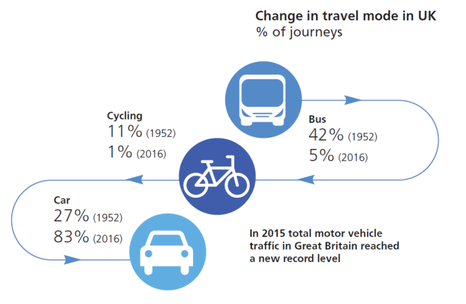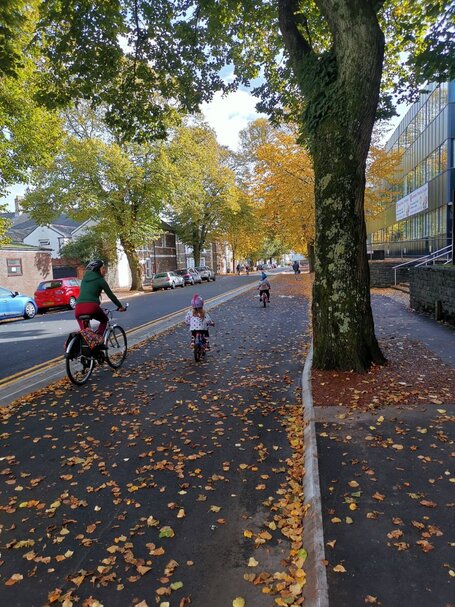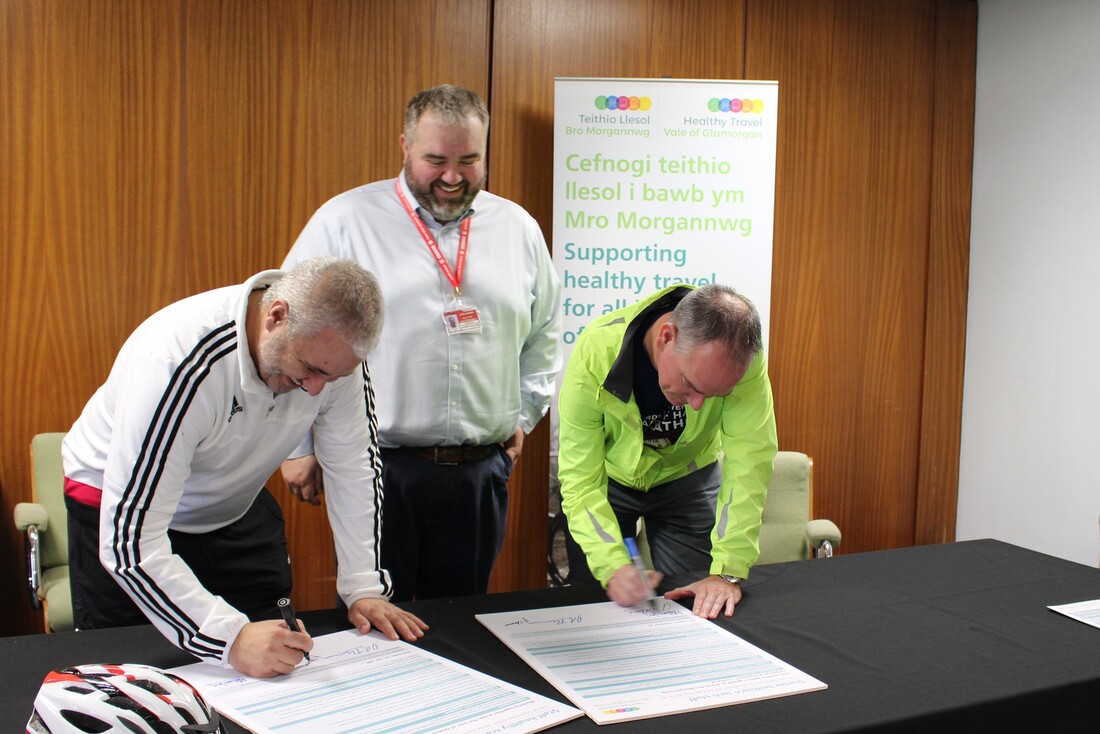Why is healthy travel important?
|
Declining levels of physical activity, increasing levels of obesity and diabetes, widespread air pollution, social isolation, and worsening health inequalities are all pressing public health issues. Climate change is a severe threat which is already being felt in the UK and across the world.
Changing patterns in the way we travel and how we design our environments for travel have played a significant role in these issues. Bold action is required in Wales if we are to reverse these trends in population and global health, and create a healthier more sustainable future for our residents. |
For more detail and full references for the information here, please see the Moving Forwards report.
|
|
The effects on health and well-being
This shift in travel mode has contributed to a significant decrease in physical activity, which in turn is associated with an increased risk of ill health, including cardiovascular disease, cancer and diabetes. Road transport is a major contributor to harmful air pollution, and is responsible for around 1,000 accidents causing serious injury or death each year in Wales. As our environments have been shaped around the car, interactions within and between communities have dropped. Many of the adverse impacts of road transport are felt more in more deprived communities, contributing to worsening health inequalities. Climate change increases the risk of severe weather events including flooding which will increasingly affect our communities and our infrastructure. |
Sedentary lifestyles are associated with a 91% increase in risk of type 2 diabetes |
|
We could do things differently
Health and well-being in our communities could be significantly improved if active travel becomes the norm for short journeys, public transport is used for longer journeys, and air quality improves. The time is right for change A number of opportunities exist right now to help us make a dramatic shift in how we get around:
A vision for the future - and now The Healthy Travel Charters are one part of implementing a wider vision for travel in Wales in which:
|
The benefits
If we get this right, potential benefits include reduced rates of cardiovascular disease (20-35% fewer cases), cancer (20-30% lower risk of colon and breast cancer), obesity and diabetes (30-40% fewer cases); improvements in mental well-being; and reduced sickness absence.
Wider benefits include reduced inequality in life expectancy between our most and least deprived areas; more cohesive communities and reduced loneliness; reduced air pollution and lower carbon emissions contributing to global warming; and reduced demand for health and social care services.
If we get this right, potential benefits include reduced rates of cardiovascular disease (20-35% fewer cases), cancer (20-30% lower risk of colon and breast cancer), obesity and diabetes (30-40% fewer cases); improvements in mental well-being; and reduced sickness absence.
Wider benefits include reduced inequality in life expectancy between our most and least deprived areas; more cohesive communities and reduced loneliness; reduced air pollution and lower carbon emissions contributing to global warming; and reduced demand for health and social care services.
|
Everyone playing their part: what we need to do together
To make a significant and sustained improvement in our health and well-being we need to take decisive action now and over the next 5 years, in four main areas.
What action can I take? At an individual level, walking and cycling more and reducing your use of a private car (if you have one) will improve your physical and mental well-being, and reduce air pollution. Leaving the car at home one day a week and taking public transport instead is another good starting place. If you are considering replacing your car think firstly, do you need it (especially if you are a two car household)? If you do, could your next car be electric? If you work for an organisation in one of the areas covered by the existing Charters then see what your employer is offering to help you make the switch. If your employer is not currently a signatory to a Charter, then suggest they sign up. Air pollution, climate change and sedentary behaviour won't be solved by any individual alone, but together we can make a difference - so please take action now. |
Interested?
Find out more about these issues in the Moving Forwards report, or listen to Dr Tom Porter and Bryn Kentish discuss healthy travel and the Charters in the podcast below.
Find out more about these issues in the Moving Forwards report, or listen to Dr Tom Porter and Bryn Kentish discuss healthy travel and the Charters in the podcast below.





